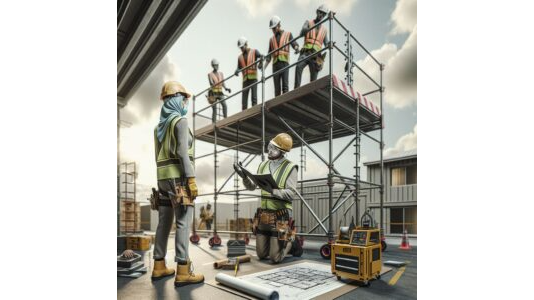Will emerging technologies such as AI render the human factor in the construction industry redundant, or will they pave the way for an era marked by increased profitability and sustainability?

In 2023, a construction site billboard with a copy saying, “Hey ChatGPT, finish this building,” went viral and earned heaps of praise from netizens not quite so happy with the prospect of AI replacing jobs.
While the ad was successful in highlighting the limitations of a technology that’s now the main focus of tech giants like Google and Microsoft, worries about the clever dig on AI might age like milk once the tech matures and takes on tasks usually reserved for humans.
So how does the future of construction look amid the rapid developments in AI, machine learning, and the like? Not too dystopian, really. At least that is according to insiders excited for an industry set to be transformed by software and hardware that are safer, more efficient, and more sustainable.
KPMG in a white paper described the current state of the construction industry as “high-carbon footprint, high-waste and high-polluting” as it continues to deal with “age-old, sector-specific challenges”. But it doesn’t expect this trend to continue past 2030, as the industry is forecast to develop the “courage” to refuse projects with severe environmental impact.
The consulting firm further stated that it expects the construction value chain during that period to become sustainable, marked by a circular design and the involvement of affected stakeholders, like the local community. This level of sustainability and ethical stance, it explained, is appealing to potential investors and will ultimately be a financial boon to the industry as a whole.
The paper was a bit light on details on how this bright future will be brought about, but an online resource specializing in tech advancements in construction believes that software will play a key role. In an in-depth post, Construction Trades Software said that advanced material estimators will be able to calculate the exact amount of material needed for a project, thus eliminating wastage. “This precision not only benefits your budget but also the environment by reducing the amount of unused materials that end up in landfills,” it added.
Another type of software that it expects to become a staple in the industry is green building certification compliance software, which will allow project owners to determine if they're on track to achieving a LEED or BREEAM certification. "This software is a testament to your commitment to eco-friendly building practices, which can attract clients who value sustainability," the publication said.
ConstructConnect declared that AI has already "landed" and will be a transformative force in the preconstruction planning stage of a project. In a recent post, the software company said that AI is permeating into the various stages of this process, such as in the pre-design stage where AI's accuracy and "general lack of bias" are invaluable.
To those thinking that AI will go the way of curiosities like 3D-printed buildings, Construction Trades Software warned that the adoption of AI is not a fad but represents an industry-wide shift towards efficiency and sustainability. "These trends highlight the industry’s commitment to innovation and the constant pursuit of better, faster, and greener ways to build."
This content is provided in partnership with Construction Trades Software and is intended for informational purposes only. The views, opinions, and advice expressed in this article are solely those of Construction Trades Software and do not necessarily reflect the views or policies of any other individual, organization, or entity.
